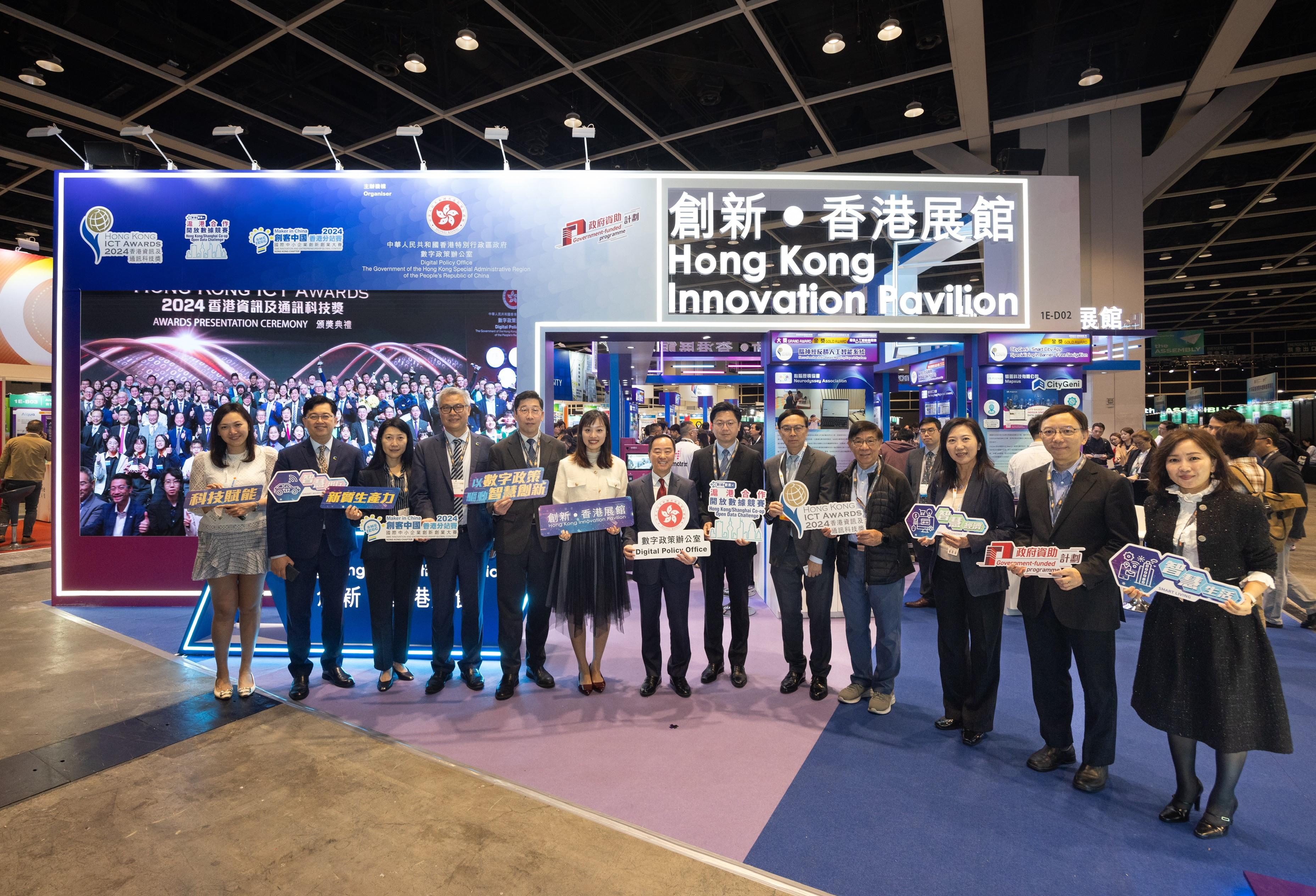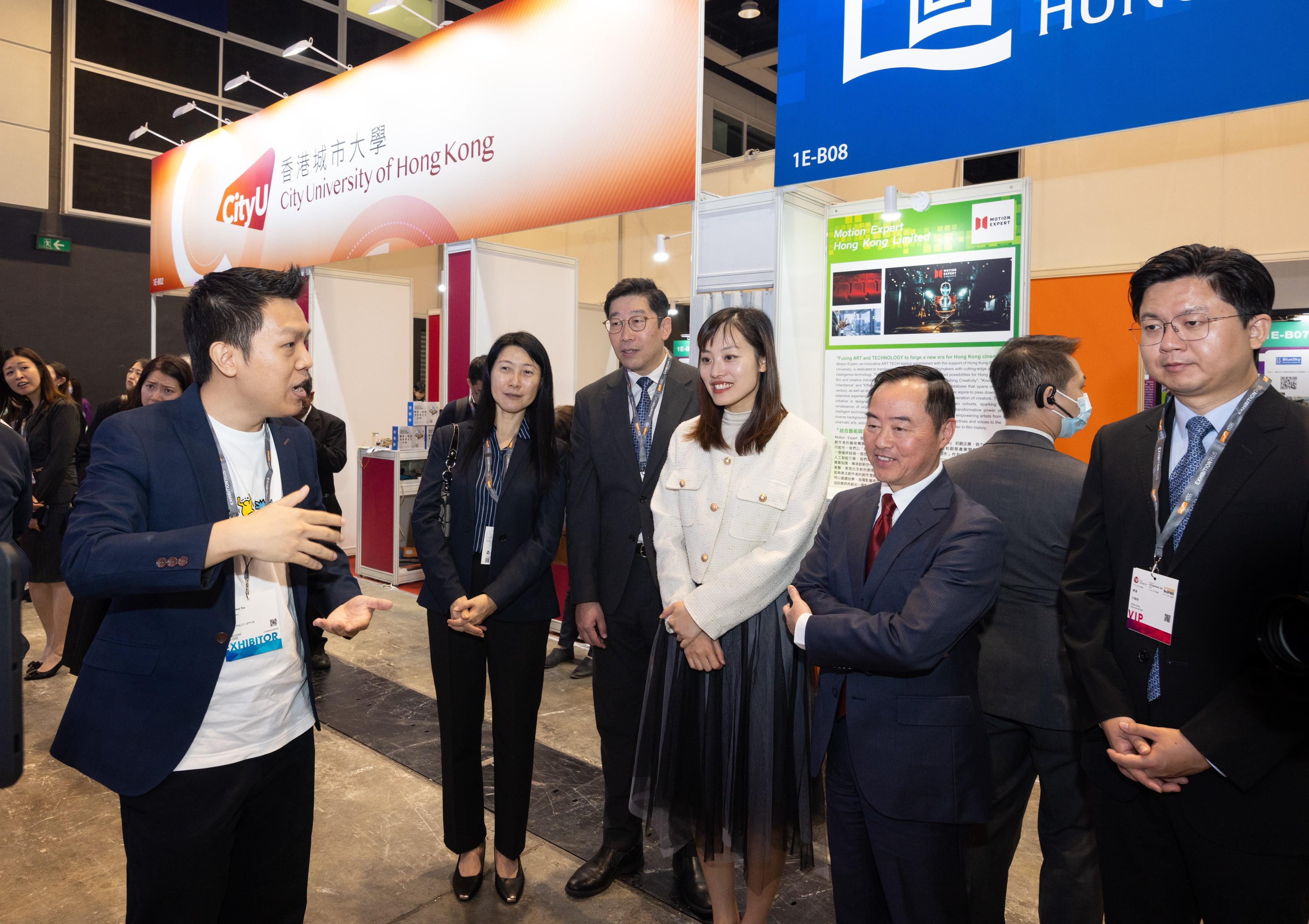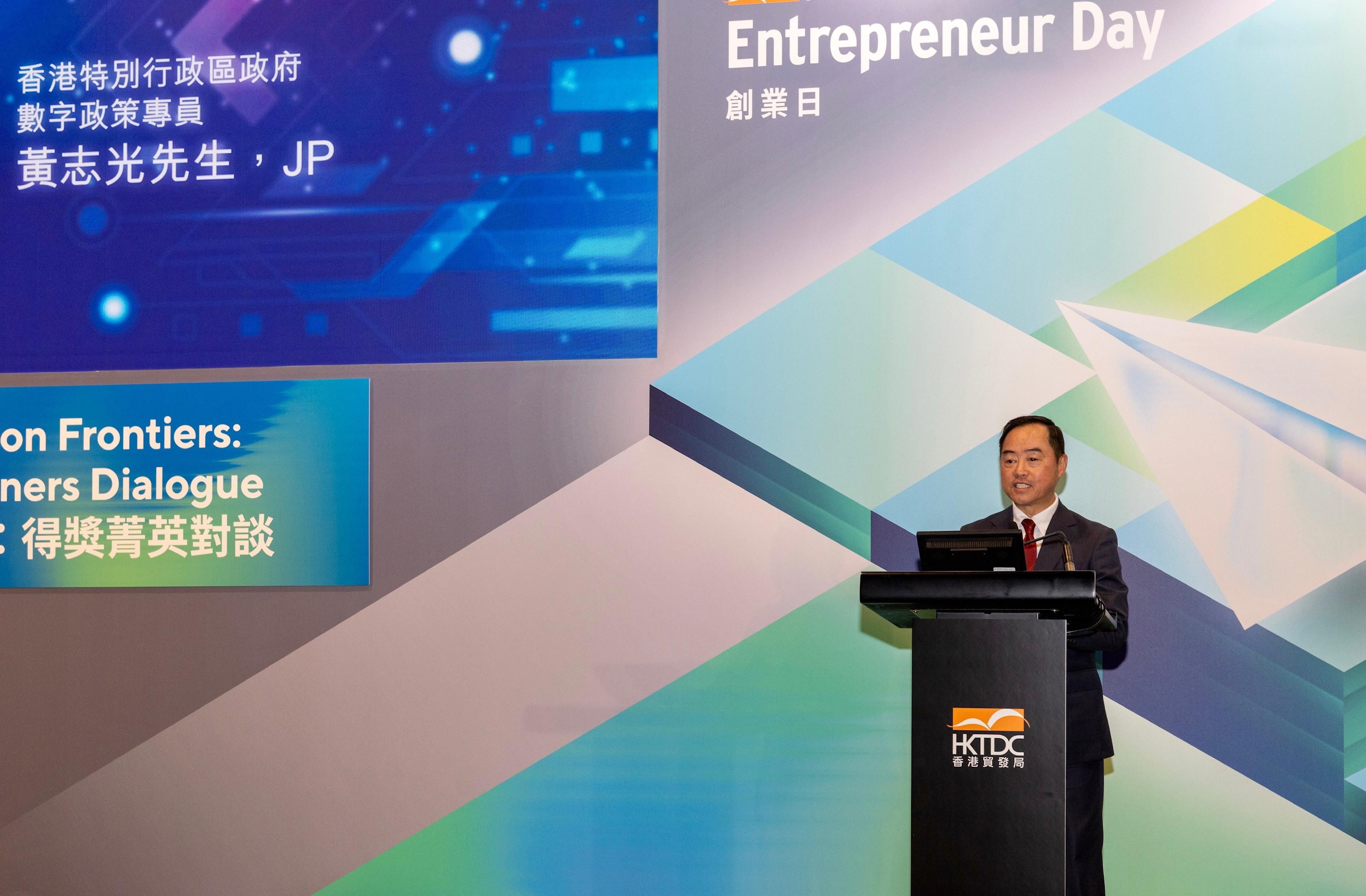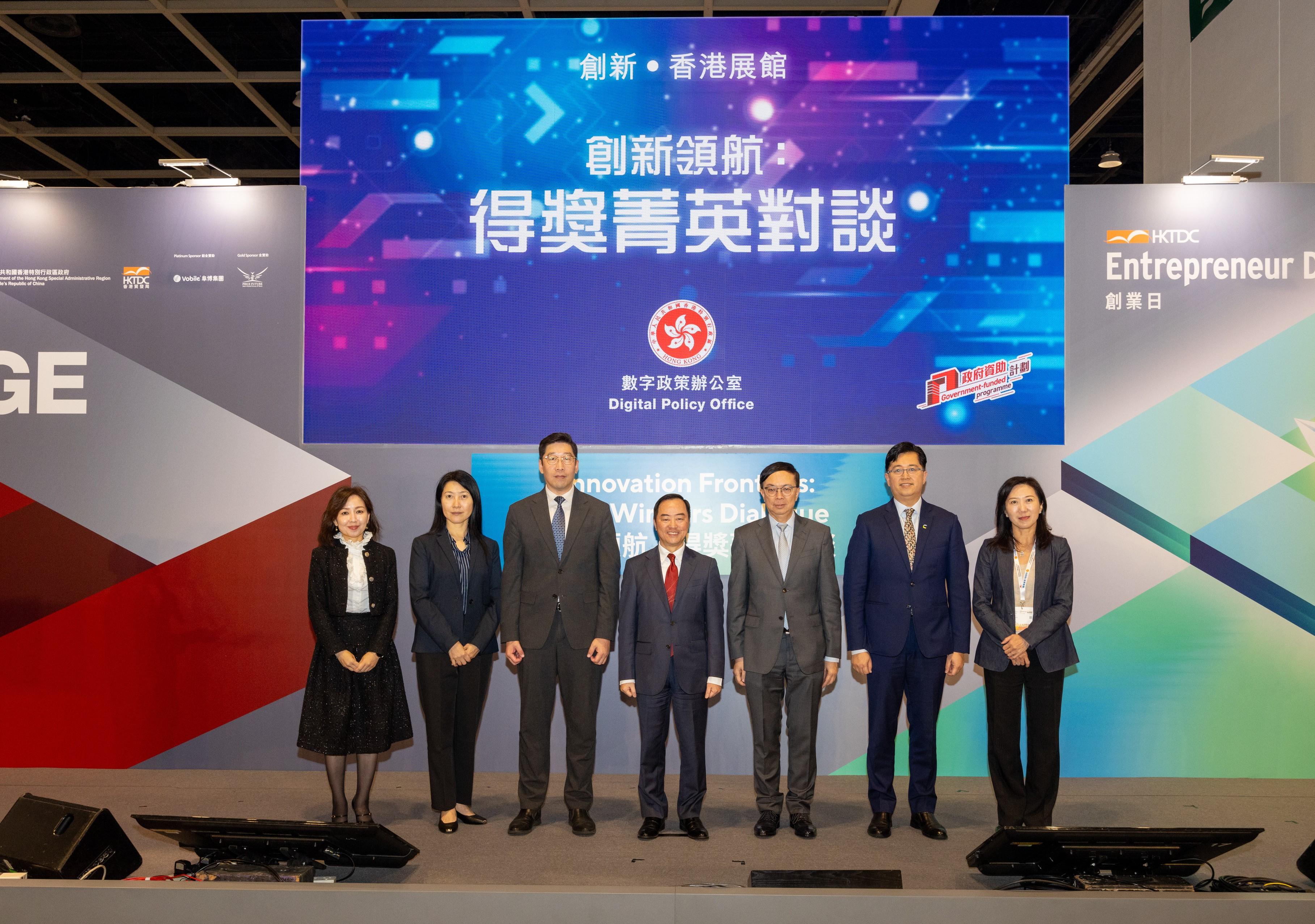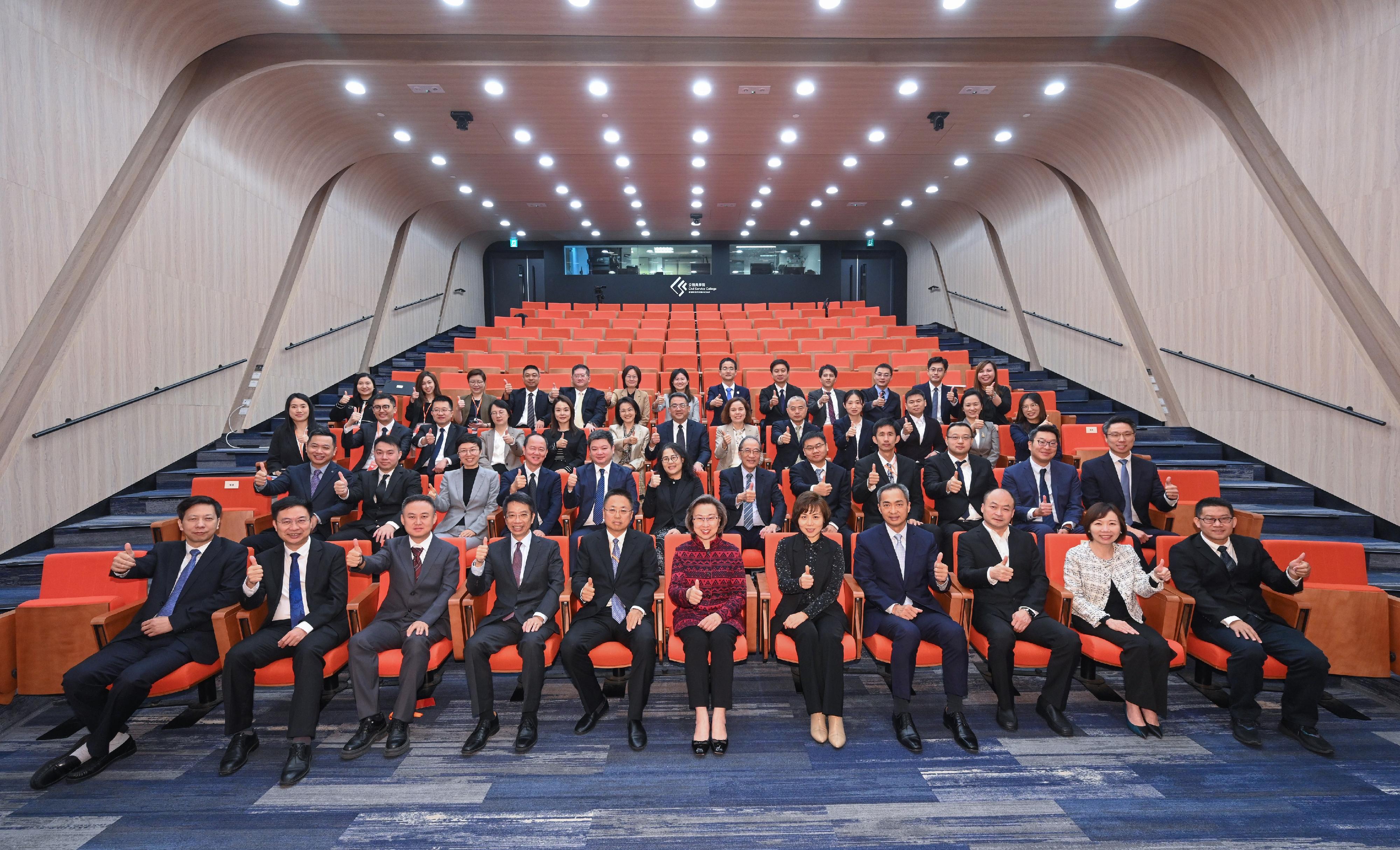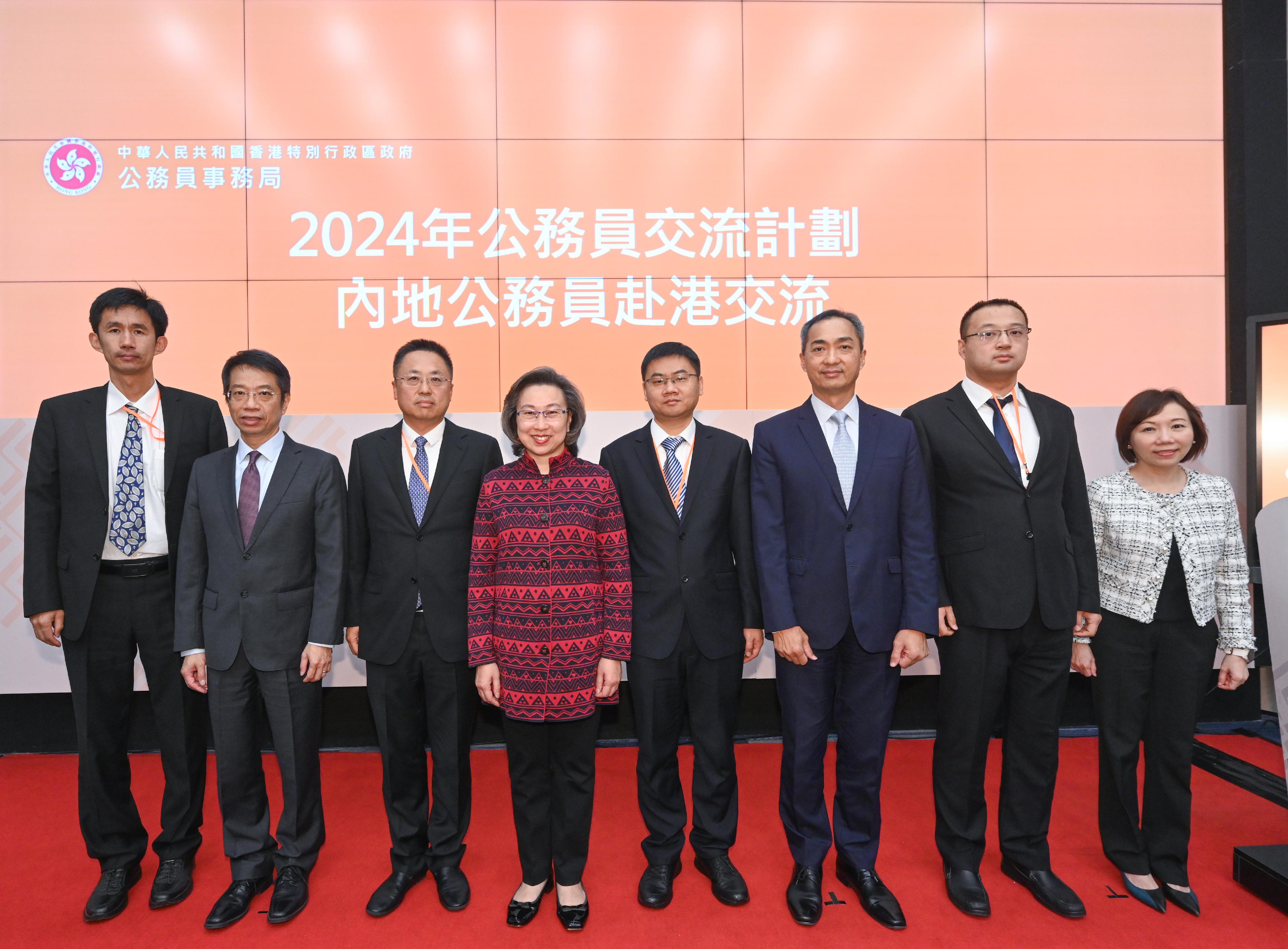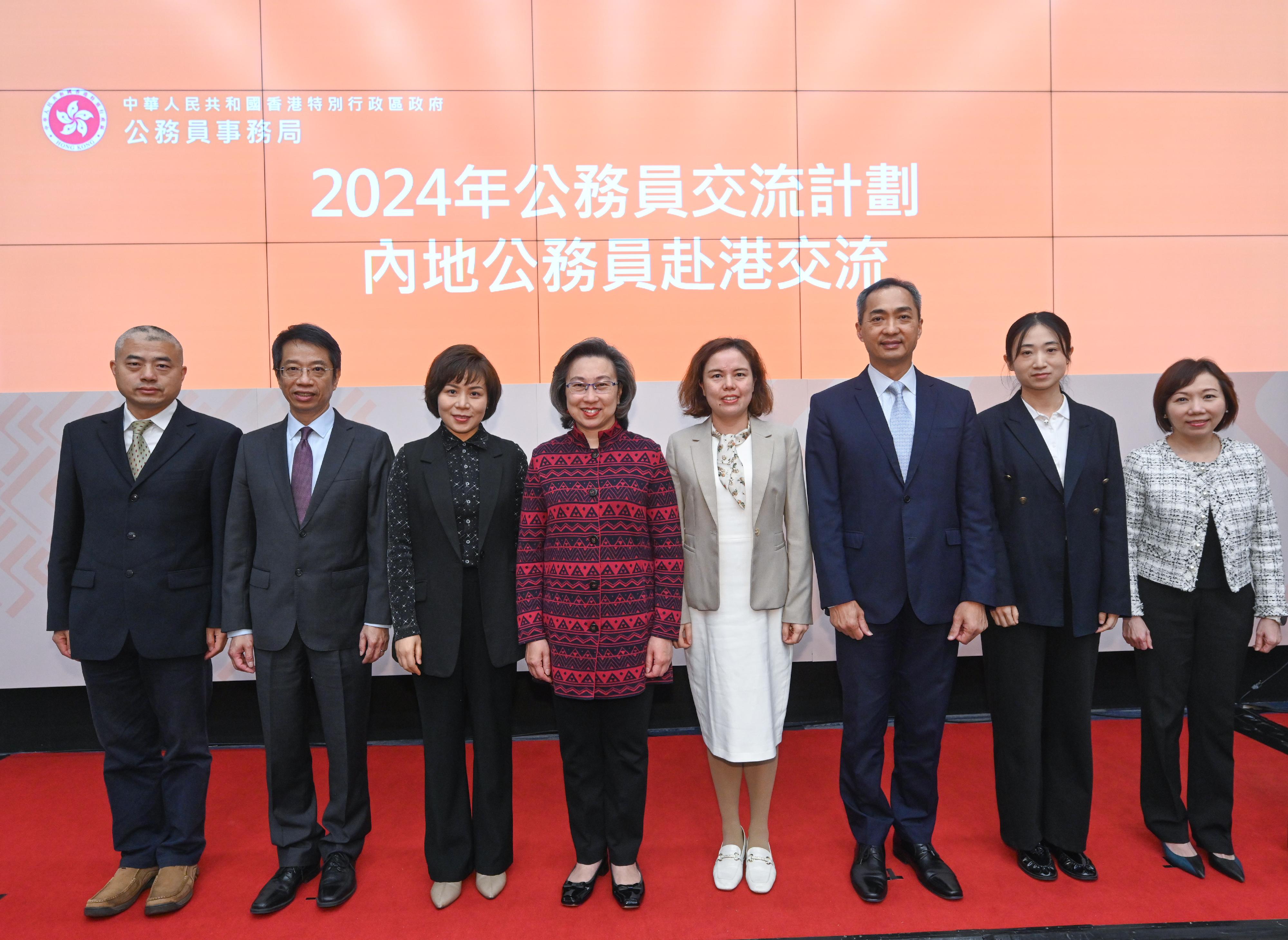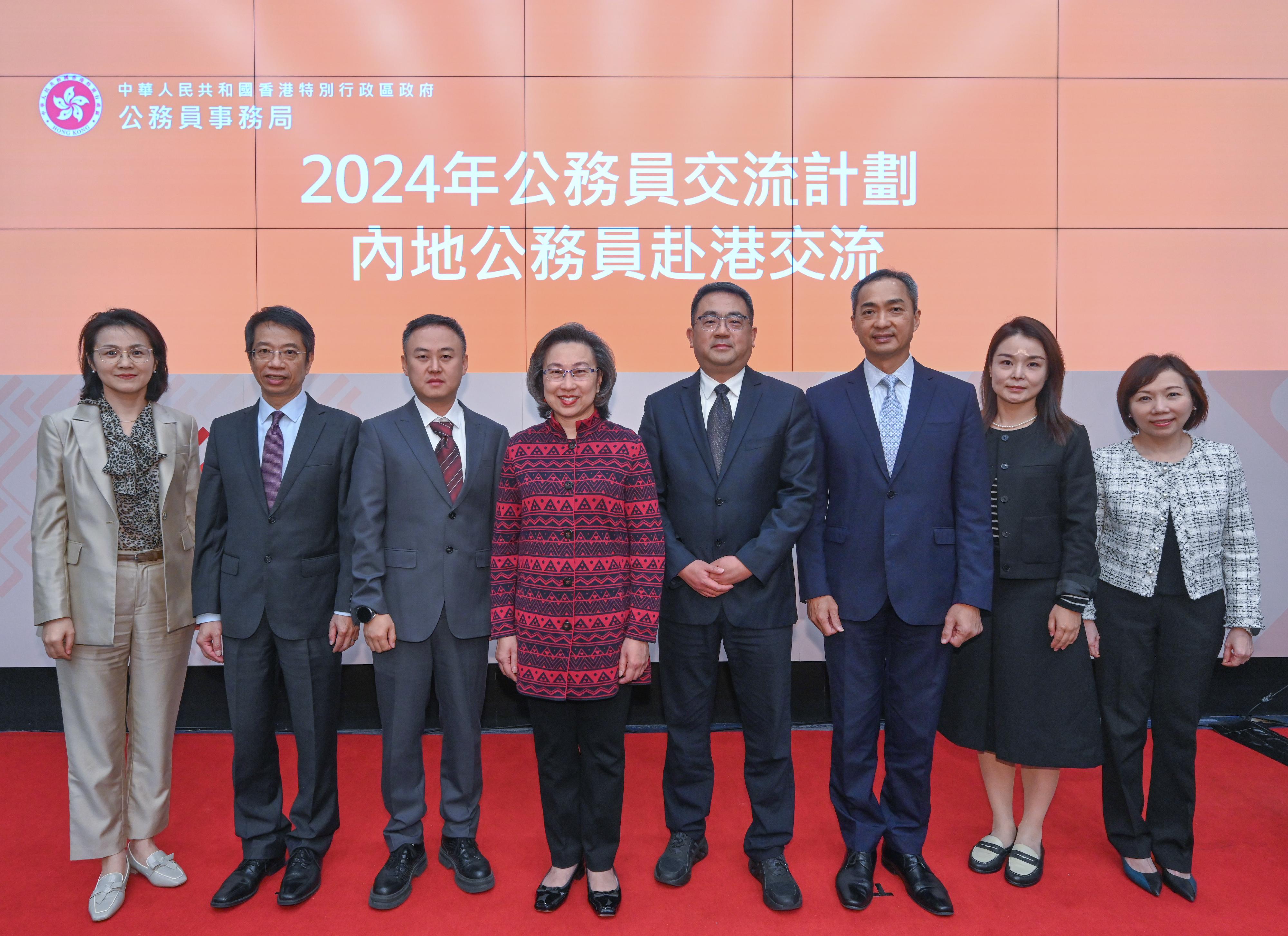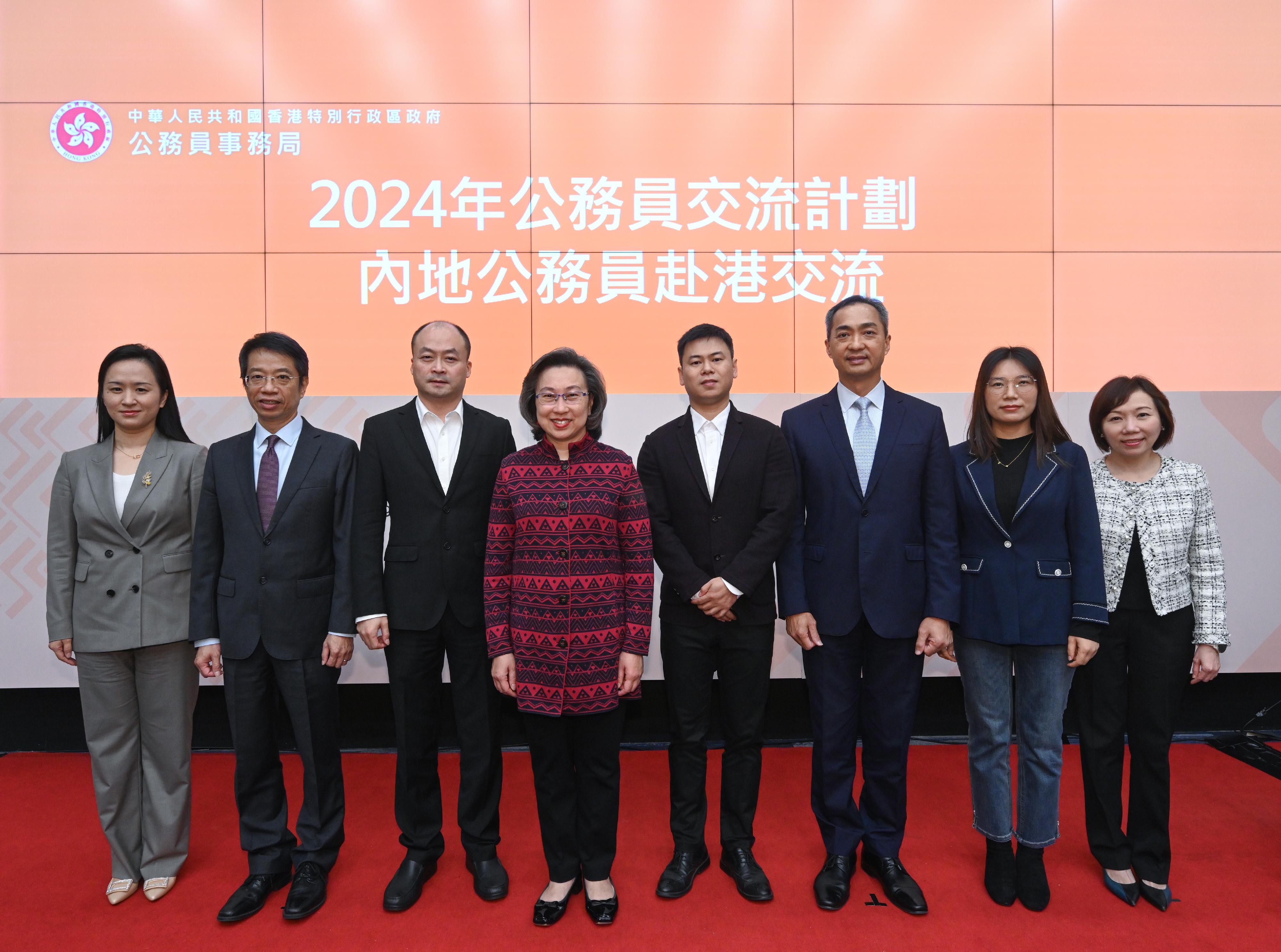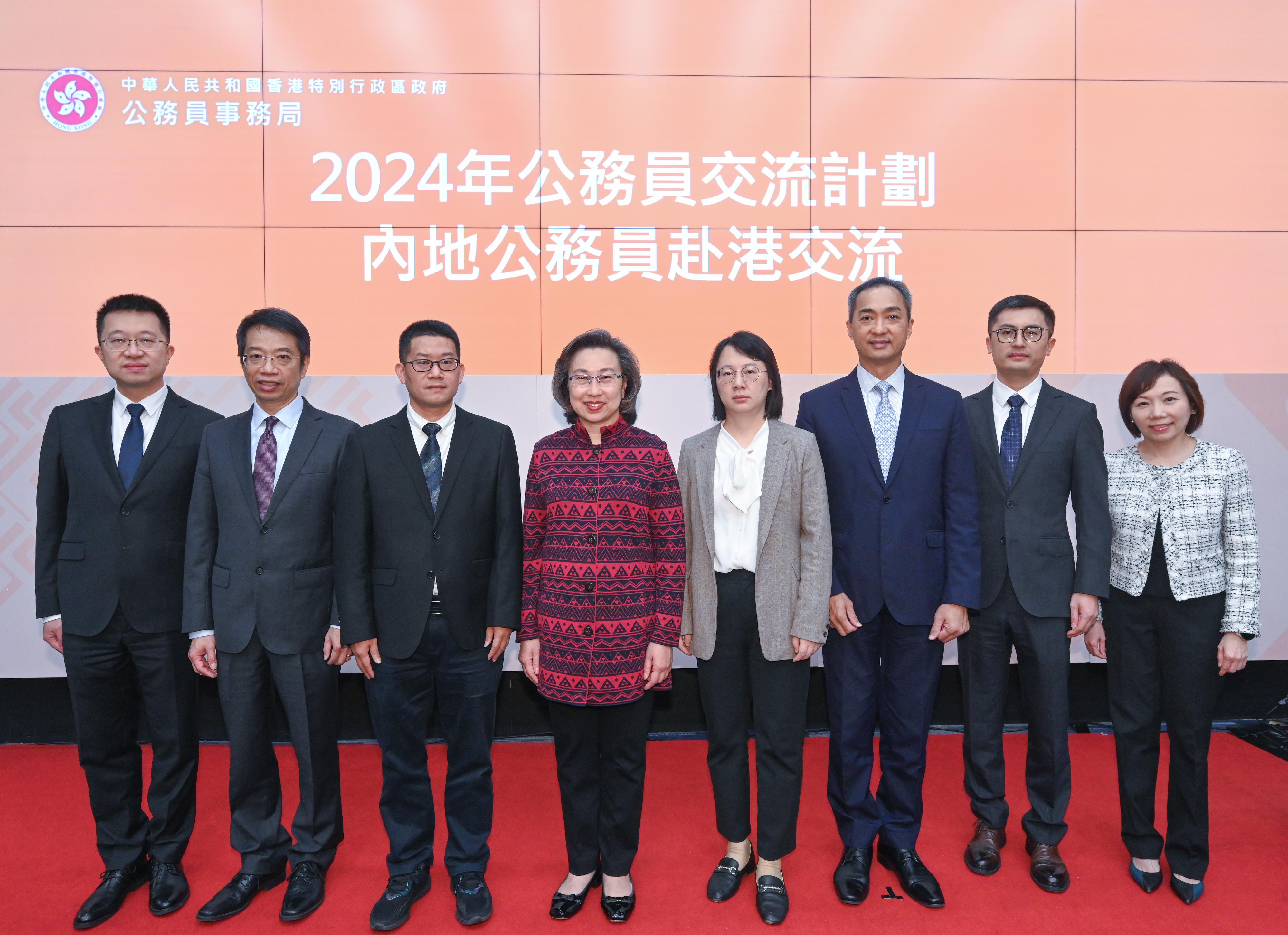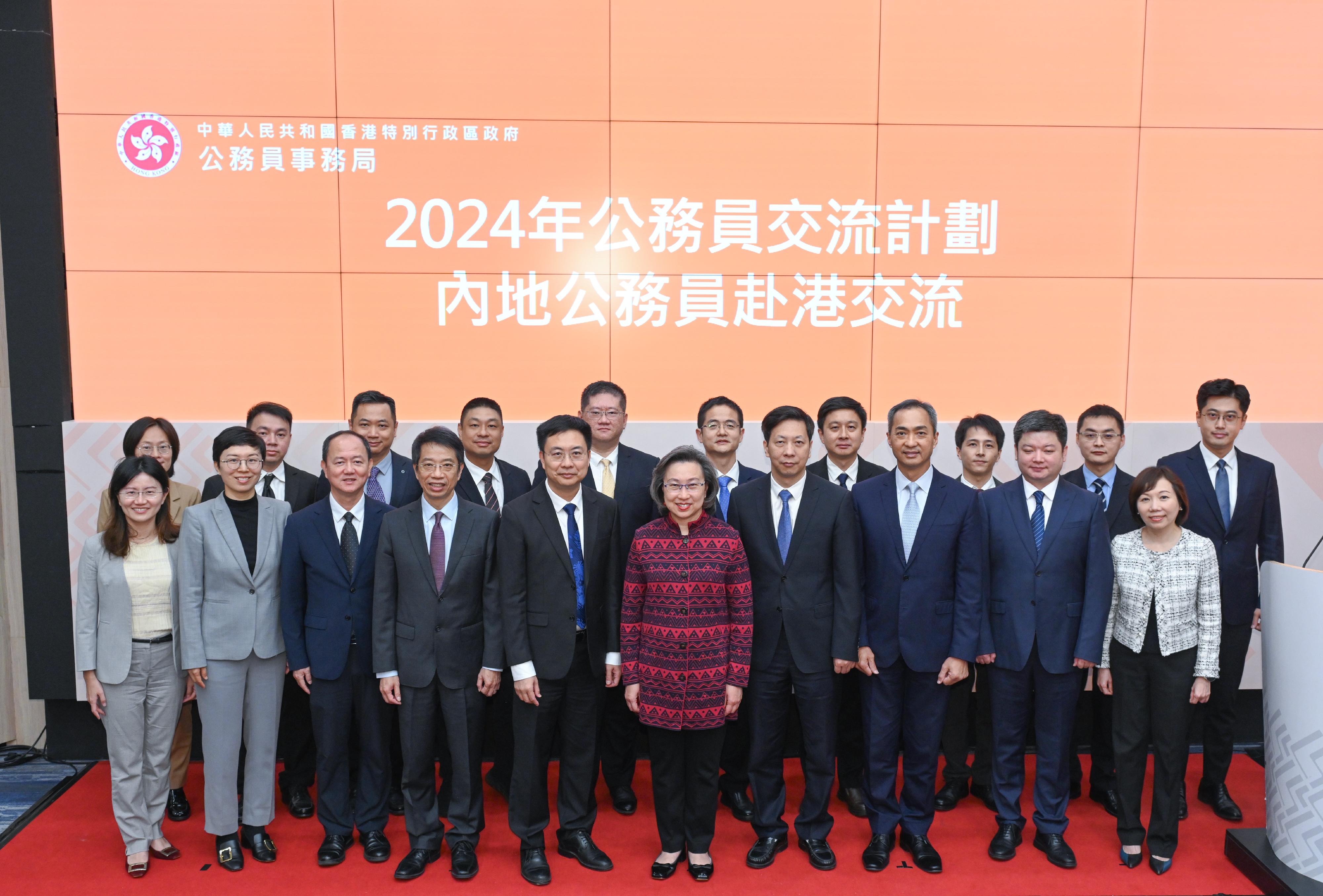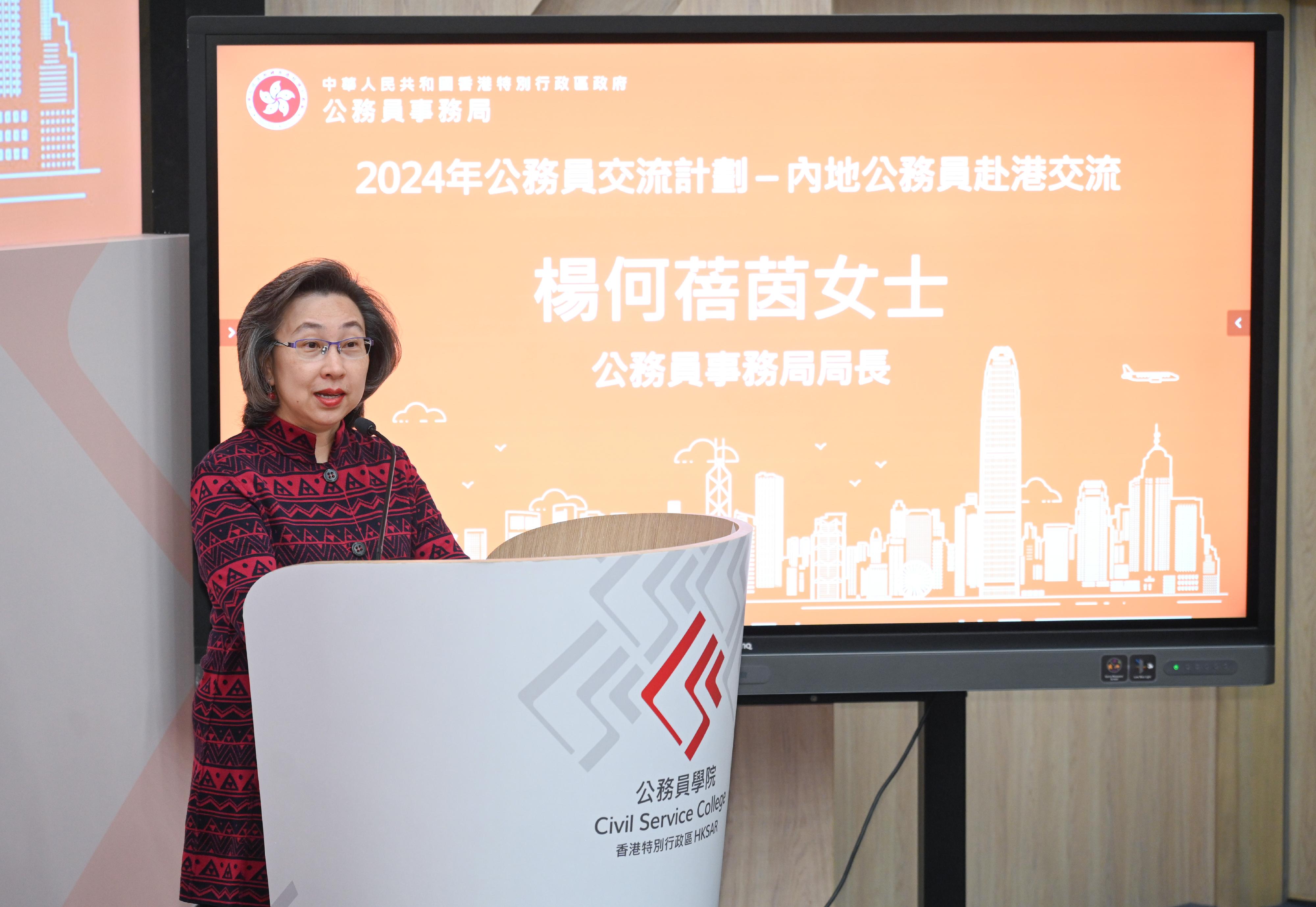Hong Kong Innovation Pavilion showcases local award-winning I&T projects at Entrepreneur Day (with photos)
The Digital Policy Office (DPO) is staging the Hong Kong Innovation Pavilion (the Pavilion) at the Entrepreneur Day (E-Day) organised by the Hong Kong Trade Development Council (HKTDC) for two consecutive days starting today (December 5). The Pavilion, in its inaugural edition, showcases over 30 local award-winning innovation and technology (I&T) projects across four dedicated zones: "Smart Living", "Smart People", "Smart Economy" and "Smart Mobility", with a view to commending exemplary local innovations and promoting award-winning and marketable projects.
On opening day, the Under Secretary for Innovation, Technology and Industry, Ms Lillian Cheong, and the Commissioner for Digital Policy, Mr Tony Wong, toured the Pavilion. Supporting start-ups is a crucial component in enhancing the I&T industry chain. Apart from regularly organising I&T competitions, the DPO also actively develops diverse promotional platforms for winning enterprises, such as funding winning enterprises to showcase their innovative solutions and explore business opportunities at large-scale local, Mainland and overseas technology exhibitions. Furthermore, the DPO supports outstanding projects to compete in national and international I&T competitions to demonstrate the exemplary achievements of Hong Kong's I&T sector and promote exchanges as well as collaboration between winners and I&T talent locally and abroad, thereby strengthening Hong Kong's position as an international I&T centre.
Moreover, the DPO also organised the Innovation Frontiers: Elite Winners Dialogue sharing session today, with Mr Wong delivering his opening remarks. He said that the Hong Kong Innovation Pavilion serves as an excellent promotional platform for award-winning companies to showcase their outstanding projects. By engaging in exchanges with potential customers and investors, the companies can take the opportunity to further broaden their business rapport and network. With its unwavering support to the growth of local start-ups, the Hong Kong Special Administrative Region Government is committed to enhancing the I&T industry chain and contributing to the high-quality development of new, quality productive forces for both the nation and Hong Kong, thereby accelerating the development of a digital economy and smart city concept in Hong Kong. At the sharing session, representatives of award-winning enterprises elaborated on artificial intelligence (AI) applications and breakthroughs across a wide variety of domains including digital entertainment, educational technology, fintech and healthcare technology. They also shared their successful experiences on leveraging I&T to promote inclusive smart living.
The winning solutions showcased at the Pavilion are from the Hong Kong ICT Awards 2024, the 2024 Maker in China SME Innovation and Entrepreneurship Global Contest – Hong Kong Chapter, and the Hong Kong/Shanghai Co-operation Open Data Challenge 2024. Through the Pavilion, the DPO hopes to allow all sectors of society to have a more in-depth understanding of outstanding local I&T achievements and jointly foster Hong Kong's I&T and smart city development.
Following are some of the projects on display at the Pavilion:
- Smart Living: Featuring a surgical guidance platform employing augmented reality and AI technologies; it is the world's first AI-powered Internet of Things solution utilising sonar technology to monitor swimmers' safety. Also featured is a green AI-driven sorting system that revolutionises the recycling industry.
- Smart People: Showcasing latest technologies are products such as barrier-free city navigation, smart home and elderly care systems, as well as smart wearable devices to address the diverse needs of the public.
- Smart Economy: On display is the Digital Assets Automated Teller Machine, the world's first generative AI instant facial translation platform, as well as technology to allow the experience of a 3D real-time virtual reality interactive livestream space that combines AI and extended reality.
- Smart Mobility: Featuring a traffic data analytics system as the world's first micro mobility network powered by solar energy and wireless charging. Also on display is a smart hotel system solution for controlling in-room devices.
The E-Day, with the theme of "Where Start-up Dreams Take Flight", is the HKTDC's anchor start-up event where entrepreneurs can connect with investors and partners, interact with industry leaders, and accelerate business development. Interested parties from the trade can register free of charge at the HKTDC's website (www.hktdc.com/event/eday/en).
